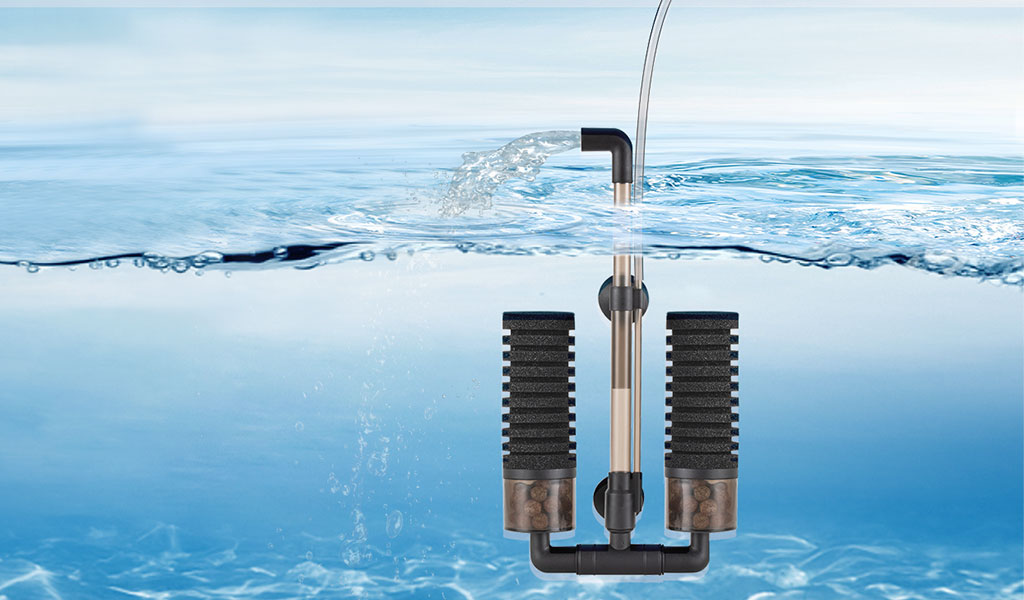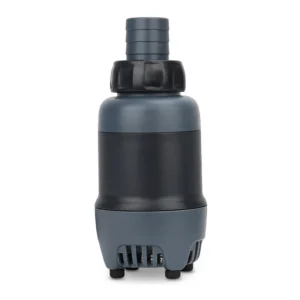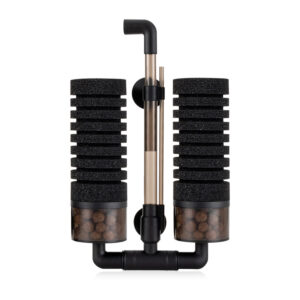Can filter drinking water be used in a fish aquarium?
Definitely! Filtered drinking water can safely be used in freshwater, marine, and reef aquarium systems. For a freshwater aquarium setup, It will save you from having to add dechlorination drops to the water, it also ensures other heavy metals have been removed from the water before you add it to the tank.
Content Table
However, some filters like RO Water Filters remove all the minerals, leaving no Total Dissolved Solids (TDS). Because of this, you should look to add back some of the lost good minerals to the water, for your fish to live. The easiest way to do this is to make sure you are using a water filter that has a remineralizing stage, such as the Home Master TMHP Hydroperfection
We will cover why you need to do this a little later, But in short, the reason for this is just like humans, fish need a certain level of minerals to survive, and their natural habitat would be quite high in dissolved minerals.
If you are using a saltwater aquarium setup, starting with pure filtered water makes it a lot easier to get the right salt balance, before adding it to the tank because you know exactly how much sea salt to add per gallon.
Which is better for a fish tank, filtered drinking water or distilled water?
Often people get confused by the terms filtered water, and distilled water. And although similar, they are quite different.
A water distiller removes impurities by boiling the water and condensing the vapor. Essentially, distilled water is made by a process that mimics natural events of evaporation, condensation, and precipitation (rain).
Filtered drinking water is typically produced by an activated carbon filter, or other similar devices to remove particulate matter, bacteria, and chemicals like chlorine.
Either filtered drinking water or distilled water can be used in fish tanks in some way. Clean pollutant-free water is the best way to ensure your fish stays healthy and happy.
Most people choose to use filtered water purely because of convenience. Distilling water is a prolonged process, so distilling enough at home to fill a fish tank, even a small one, would take days. Meaning the only viable option is to buy gallons of filtered water.
In contrast, a plumbed-in water filter will produce gallons of water per hour, I connect a small silicone hose directly to the outlet and fill it directly from the faucet, with no mess, and no heavy containers of water to carry.

Why should you use filtered drinking water in an aquarium?
Fish absorb water through their gills, and the gills filter oxygen directly into the fish’s bloodstream. The water from the tap will contain a bunch of chemicals that are “safe” for humans to drink, but they will kill most fish.
Using filtered drinking water in aquariums will reduce the amount of chlorine and chloramine levels, making it safe for your fish.
Fish should not be exposed to chlorine in their water. In addition to removing the chlorine, filtering the water with a filter also removes any other substances that may harm the fish, removing harmful chemicals, bacteria, microplastics, and other non-biological pollutants from the water. Fresh, clean water will increase the lifespan of fish in an aquarium.
Using filtered water also helps keep a low PH in aquariums.
Can you use spring water for the fish tank?
Yes, you can use treated spring water to fill or top up an aquarium. Because spring water is usually rich in minerals. The advantage of spring water is that there is no chlorine residue, which can save the process of drying water. However, it is still necessary to explode oxygen and filter before pouring it into the tank fish.
So if you notice your fish’s water getting a bit low, and you have a bottle of spring water handy, absolutely go ahead and top up the tank with it. But don’t go out and buy spring water just for this purpose, unless you love your fish and want them to swim in nothing, but the best crystal-clear waters from a spring high up in the mountains of Fiji.
What are the different types of filtered water suitable for aquariums?
Reverse Osmosis Systems Suitable for Aquariums
Reverse Osmosis is the best purification method for making the water spotless and pure. Contaminants such as fluoride, chlorine, chloramines, nitrates, phosphates, and heavy metals are removed from tap water by reverse osmosis.
This means that all RO water filters are perfectly safe to use with your fish aquarium.
Carbon Block Filters
If you don’t have the budget for an RO system, you could also use a carbon internal filter system that removes chlorine and fluoride. It will come down to your budget if you want to spend only a few dollars, then you could even get by using a Brita Filter, or even a Big Berky Filter these are good options. If you are only topping up your tank due to small amounts of evaporation.
Drinking-Water Filters not Suitable for Aquariums
Filters that you absolutely should never use are the type that is promoted as “Energized water” Or “Alkalizing water filters”, such as Kangen filters. Alkaline water may (or may not) have health benefits for humans when they drink it. But if you use alkaline water in a fish tank, you will likely kill the fish.
Why do Fish Need Mineralized Water in their Aquariums?
Fish need minerals in their diet to thrive, however unlike air and land-based animals, fish can absorb minerals from the water they live in. Keeping some minerals in your fish tank water will allow the animals to thrive and live healthy lives.
If you think about it in nature the water fish live in has been filtered through sand and rocks, flowed down streams, and picked up many minerals along the way, so using water rich in good minerals is going to be similar to the natural environment of the fish.
It is recommended that you use filtered water for your fish tank. Then you can add measured amounts of essential minerals to the water, this will ensure that your water is stable and regulated. Of course, if you use a filter that has a remineralizing stage, it will do all the hard work for you.
Topping Up Your Aquarium with Pure 99.99% TDS TDS-free water is the Best
If your aquarium suffers from a lot of natural evaporation, then you should be using filtered water to top up. Because as water evaporates, it leaves behind dissolved minerals and dissolved fish waste. Minerals and salts will quickly build up in your aquarium if you regularly top up the tank with unfiltered water.
It is also a good idea to remove 50% of the water every time you top up your fish’s water too, this will help avoid toxic nasties building up in the water.
Are there any disadvantages to using filtered water in a fish aquarium?
There are not many disadvantages to using filtered water to fill or top up your fish tanks. The only real downside is the cost. If you are going to buy distilled water the cost adds up over time, and you are also wasting a lot of plastic bottles, which is not good for the environment.
The downside to using filtered water is if you do not already have an RO filter installed, you will need to purchase one, and they can cost upwards of a few hundred dollars, plus you will need to replace the filters periodically too.
CouponXOO is Hygger’s coupon partner, so you can find the latest Hygger coupons at Couponxoo to get the best price.


You never want to use distilled or purified water. It has no minerals the fish need.
You should probably change your info on the site. Spring water is best bit still may need treated.
Thanks Joe, you’re really give us great suggestions and we’ve change the info about that.
Any other questions or suggestions, please feel free to contact us.
Thank you very much.